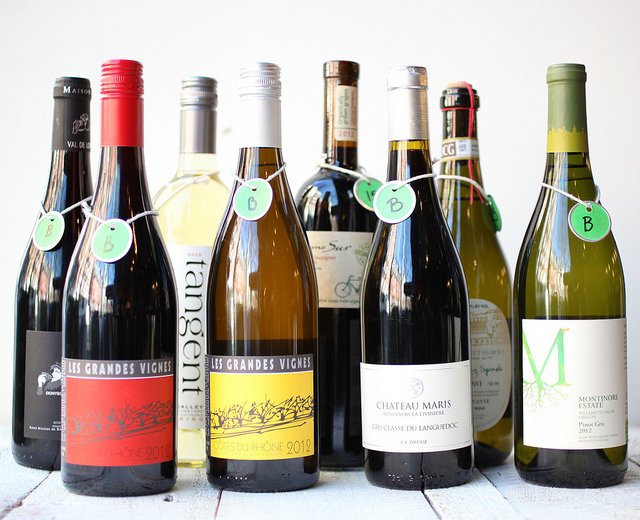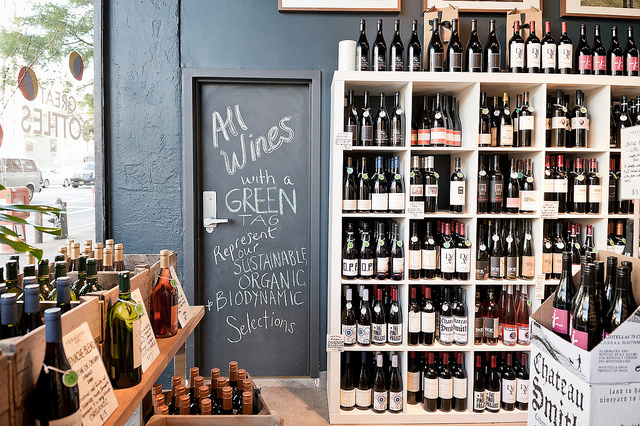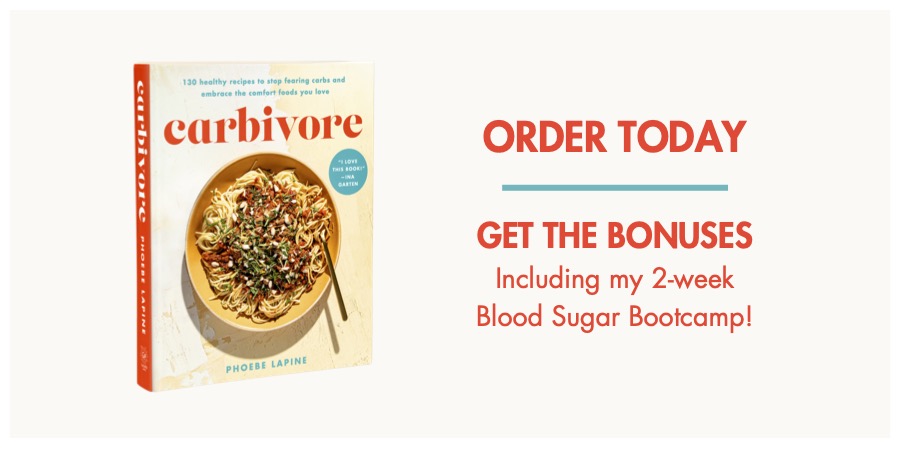If you’re looking for a hostess gift, wine for a holiday meal, or simply a go-to weeknight bottle to add to your collection, these biodynamic and organic wines are a great place to start. I’ve rounded up red and white wines that are both delicious, affordable and made sustainably.
As I’ve admitted in the past, one of the results of my month-long vice detox is that I’ve become a bit of a fancy pants when it comes to wine, especially red wine without additives.
Over the last few years, since completing my book The Wellness Project, my pursuit of healthy hedonism has meant less wine, but also better, cleaner wine that is responsibly made.
Luckily, organic wines have been cropping up more and more on restaurant lists, going toe to toe with the conventional heavy weights. The contents of these bottles are made using organic farming and harvesting practices – meaning, no additives, pesticides and such.
What is a biodynamic wine?
If a wine is also biodynamic, it means that the vineyard is harvested sustainably according to the lunar calendar. Usually, biodynamic vineyards also have a working farm nearby, as the wine production is weaved into the overall sustainability of the operation as a whole.
Biodynamic wines have no added sulfites, sugar or other additives. You can also safely assume they’re organic, even if they don’t have the certification.
For awhile natural wines were also thought to be a flavor seeker’s gamble. Without a little help from laboratories to correct imperfections and irregularities from crop to crop, these bottles can often have a funky, off-putting quality. As my good friend, natural wine enthusiast, and soon-to-be sommelier, David Bruno told me: this is a big misconception.
While some natural wine makers like to experiment and get weird, if you know where to find the best bottles, natural, organic, and biodynamic wines are straight forward delicious.
How do you know if a wine is organic or biodynamic?
Some shops have begun putting green tags or labels on some of their stock to indicate sustainable, biodynamic practices.
I got my early education in natural wines from Foragers, an amazing little store around the corner from my old apartment in Chelsea. In addition to grocery and restaurant components that specialize in local and organic produce, they recently branched out into wine. I’ve tried many bottles from the shop, but I decided to go straight to the source to get some more information about what to look for in organic and biodynamic wines.
Drew, the wine buyer at Foragers, advised that, like packaged food, the back label is your best source of information for how a wine is made. There are a few different certifications to look for. Of course there’s certified organic. But a lot of smaller vineyards and wine makers won’t be able to afford official certification (also, like food brands), so it’s important to read the back of the label where some will explain cultivation and biodynamic processes.
Two other things to look for are SIP certification, which speaks to sustainability, and Demeter, which is the main marker for biodynamic wines.
If you don’t see a certification and don’t have time to browse, you can seek out wines from specific importers. Jenny and Francoise, one that Drew recommended, specialize in French wines. In general, the Loire Valley was one of the first regions to really catch onto the organic trend. Louis-Dressner is another one to look for in that part of the world. For some fantastic options from Germany, David recommends anything with Vom Boden on the bottle.
The importer is named on the back of the label, and if you see either of these three, you’re pretty surely selecting a more natural wine.
If you’re looking to branch out into some more natural options for your grape juice consumption, Drew has put together a list of some of his favorites from the shop that are on the more affordable side along with some other helpful information below. David has also suggested some more obscure natural bottles from various islands. And finally, Bianca Bosker, the author of the fabulous wine memoir Cork Dork and this piece on the wine additive industry, has passed along a few back pocket favorites from her virtual cellar! Plus, I’ve listed a few of the favorite bottles in our household as well.
These wines are less likely to cause a headache the next day due to the lack of additives, but in case you need them, you can also check out my natural hangover cures or tips for a full liver detox after a big night out!
THE BEST BIODYNAMIC AND ORGANIC WINE BRANDS
Drew’s Picks from Foragers NYC, under $30:
Les Vignerons d’Estezarges Grandes Vignes Cotes-du-Rhone Rouge, $17
Jenny and Francois are great distributors of organic and biodynamic wines from France. If you’re unsure of the certification on the back of the label, look for their name and you can assume that it’s a pretty clean bottle.
Tangent Albarino, $18
The classic Spanish white grape grown organically in California’s Edna Valley and is certified sustainable through SiP (Sustainability in Practice).
Domaine du Mortier “Dionysos”, $25
This is one of our favorite red wine without additives in the shop from the Loire Valley in France. Loire Valley is one of the regions that has pioneered the use of organic and biodynamic farming and is generally a good place to look for these natural types of wines in a wine store or on a restaurant wine list.
Castello di Tassarolo Sparkling Spinola Gavi, $25
This was one of the natural wines from Jenny and Francois, which actually says “No Added Sulfites” on the bottle. This wine is super fresh and dry with soft bubbles and a clean minerality. It’s one of our spring and summer favorites.
Cono Sur Organic Cabernet Sauvignon-Carmenere, $15
This one is not technically Biodynamic, but Iit is one of the more popular organic wines in the shop and a great value.
Montinore Pinot Gris, $17
Demeter-Certified Biodynamic wine from Oregon’s Willamette Valley. Their website has good information on all their wines (we also carry their Borealis and Reserve Pinot Noir).
David Bruno’s picks from the islands and beyond:
Comte Abbatucci VDF ‘Valle di Nero’ 2014 (Corsica), $46
An island breeze in a glass. A perfect rose for all summer long.
Antoine Arena Patrimonio ‘Carco Blanc’ 2014 (Corsica), $56
Though a little on the pricier side, this Vermentino is crisp and clean for those seeking to shake up their usual Sauv Blanc drinking game.
Bellus Frappato ‘Scopello’ Sicilia 2014, $25
This Sicilian light red tastes great with a slight chill year-round.
Envinate Canary Islands ‘Taganan’ Blanco 2015, $37
Envinate are making some of the best Spanish wines for the price on the market right now, strong buy!
Enderle & Moll Baden Pinot Noir ‘Liaison’ 2015, $35
Straying from the island theme, these guys are making the most magical Pinot Noirs in Germany and have a crushable Muller-Thurgau that is a 365-day killer.
Bianca Bosker’s back pocket picks from her year of Cork Dork-ing:
Pierre Cotton Beaujolais 2016, $29
Pretty much every bottle of his I’ve had from this producer is great.
The Sandocino is also wonderful. Both are distributed through Jenny and Francois Selections.
Batič Angel Grande Cuvee 2010, $30
An excellent white from Slovenia, from an estate where the Mediterranean and the alpine climates meet.
Occhipinti Sp 68 Sicilia Bianco 2016, $30
Mine and my husband’s picks from our local organic wine shop, Thirst in Fort Greene and Verve in Manhattan:
Bonnet-Cotton, “Ygueule VDF” 2020, $30.00 $30.00
Jean Foillard Beaujolais Villages 2020, $29
Eyrie Pinot Gris Dundee Hills 2018, $24
We visited this vineyard in Oregon in 2015 and their wines never disappoint. They are also much more affordable than anything in California with superior quality, in our opinion. Their Pinot Noir is also lovely.
Stefano Massone Gavi Masera 2021, $15
Gavi is a fantastic light white from Umbria. When we see it on a menu, we always know it will play well with many different flavors on our plate. It’s a fantastic choice for the holidays when you’re not sure what’s on the menu.
Do you have any favorite natural, organic or biodynamic wine brands? Let me know in the comments so we can add to our arsenal!



Will be looking for Foragers. Remind us when they go live!
I will try!
Thank you for the info! I have asthma and the sulfites make me quite ill. It has been difficult to find wine without sulfites. I will look forward to enjoying wine again!
one day fingers crossed!
Lots of good recommendations here; thanks, Phoebe! I particularly love the Bellus Frappato and the Occhipinti SP 68. Really, when I see any Occhipinti wines I’m apt to buy/order; beyond it being beautiful wine, the story behind it is great: https://www.nytimes.com/2016/08/17/dining/nero-davola-sicily-wine-frappato-vittoria.html. Arianna Occhipinti is a young female winemaker in an industry and society (Sicily, that is) that is really male-dominated, and is so smart and lovely. Eager to try some of these other bottles!
what a glowing seal of approval!! love this story too – thanks for passing along, and thrilled to support her craft! xo
I have visited Med Loc Ames and. Benzinger for bio dynamic wines and really loved them.
great to know! thanks for sharing
I used to work at Foragers wine store, Drew is the best go source for biodynamic wines. So happy! Montinore Pinot Gris is amazing.
awesome! so fun you used to work there. I’m sure I bought lots of wine from you 🙂
Scoutandcellar.com/bestwine has only wine with no added sugar and no added chemicals. The level 3 Som who curates the wine has a list of requirements for the wines she selects. If the batch fails the $500 lab test, we don’t sell it. You can be confident if you purchase wine here that it will have only fermented grapes in the bottle.
very cool!
Badger Mountain Vineyard wines needs to be on this list! Made with 100% organic grapes, no sulfites added, and such great tasting wine. Oh, and all under $25. My absolute favorite organic wine!
Thanks for adding Kathrine!
Natural Merchants, Inc. is another fantastic organic and Biodynamic wine importer, from 9 countries in Europe and South America. All wines must have organic or Biodynamic certification and are Vegan too. Look for the Natural Merchants logo on the back of wines that can be found in fine wine stores as well as Whole Foods and other natural grocery chains across the country. Popular brands include Pizzolato from Italy, Les Hauts de Lagarde from Bordeaux, Tarantas from Spain and biokult from Austria. There are also no sulfites added wines including Spartico and Pizzolato.
Maysara winery in McMinville Oregon also has some very good biodynamic wines. talk to the owner when you go there and he can tell you exactly what is in his wine.
Hello
We want to purchase wines from your company. Please let us know the ones you have, to check products we can select and order from what you can offer.
Waiting for your response
Regards,
M. JACQUIN Denis
Directeur commercial
SAS SODIMO
Thanks for the information! I get quite sick from the sulphites because I have asthma. Finding wine without sulphites has proven to be challenging. I’m looking forwards to drinking wine once more!
@ ziobaffa is our family project based with friends in Tuscany. Organic, Biodynamic, vegan, gluten free, low sugar and alcohol, no added sulfites. we also package it in recycled glass and use an eco friendly (sustainably produced) twist-off cork. we are really proud of it and price point is every-day table wine at under $15 ; )